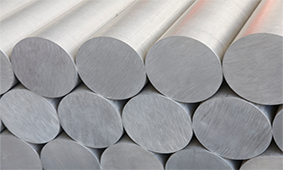
Automobile industry should focus on electric vehicles manufacture, says Nitin Gadkari

But while encouraging for the development of electric vehicles, Gadkari did not miss to assure the automobile industry that there is no ban on petrol and diesel vehicles. He only pointed out that India’s fuel import bill touched INR 7 lakh crore, which is a big amount for India’s economy.
According to him, the consumer in the future would choose electric vehicles if there were better products in the market. He said, “People are going to form queues to buy electric [vehicles] in the future. Right now Bajaj is exporting 40% of its vehicles. I am sure that the export of its electric scooters will be 10% more than this.”
Gadkari also stressed the need for the local manufacture of automobile technology. He said, “Lithium-ion battery will be made in India and its price will be reduced. When mobile phones were introduced they were very expensive, look at its price now. So, more competition means better price for consumer.”
Also, logistic cost, capital cost, and power cost need to be reduced for offering cars at a competitive price. “If we reduce all three costs, we can become very competitive in the world market,” said Gadkari.
While talking about the new scrappage policy, Gadkari said that it would ease the availability of waste materials and that too at a cheaper price. Those waste materials could be recycled, resulting in reducing the cost of materials like aluminium, which in turn would lower the car price.



Trump weighs using $2 billion in CHIPS Act funding for critical minerals

Codelco cuts 2025 copper forecast after El Teniente mine collapse

Electra converts debt, launches $30M raise to jumpstart stalled cobalt refinery

Barrick’s Reko Diq in line for $410M ADB backing

Abcourt readies Sleeping Giant mill to pour first gold since 2014

Nevada army depot to serve as base for first US strategic minerals stockpile

SQM boosts lithium supply plans as prices flick higher

Viridis unveils 200Mt initial reserve for Brazil rare earth project

Tailings could meet much of US critical mineral demand – study

Kyrgyzstan kicks off underground gold mining at Kumtor

Kyrgyzstan kicks off underground gold mining at Kumtor

KoBold Metals granted lithium exploration rights in Congo

Freeport Indonesia to wrap up Gresik plant repairs by early September

Energy Fuels soars on Vulcan Elements partnership

Northern Dynasty sticks to proposal in battle to lift Pebble mine veto

Giustra-backed mining firm teams up with informal miners in Colombia

Critical Metals signs agreement to supply rare earth to US government-funded facility

China extends rare earth controls to imported material

Galan Lithium proceeds with $13M financing for Argentina project

Kyrgyzstan kicks off underground gold mining at Kumtor

Freeport Indonesia to wrap up Gresik plant repairs by early September

Energy Fuels soars on Vulcan Elements partnership

Northern Dynasty sticks to proposal in battle to lift Pebble mine veto

Giustra-backed mining firm teams up with informal miners in Colombia

Critical Metals signs agreement to supply rare earth to US government-funded facility

China extends rare earth controls to imported material

Galan Lithium proceeds with $13M financing for Argentina project

Silver price touches $39 as market weighs rate cut outlook

















